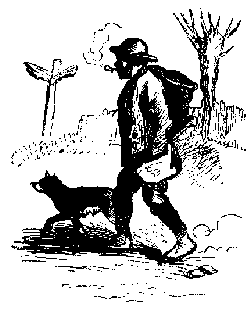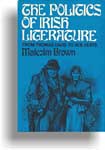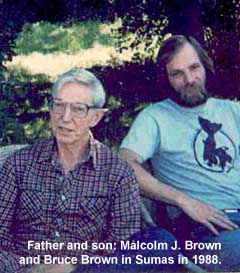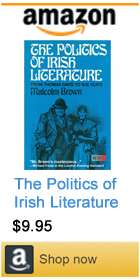Chapter Ten
Mr. Shook
LIKE WHIPPED schoolboys," most of the leaders of the crushed Young Ireland movement were well chastened by defeat. "Most of them," said John O'Leary, "had had enough of the fighting policy for the time being, and some for their natural lives." But a remnant was not inclined either to surrender like Smith O'Brien or to wait with Mitchel for some "pure" opportunity by and by. Not long after Ballingarry these men began to turn over in their minds how to strike the next blow. All the mistakes leading to the late deplored military fiasco they analyzed soberly, hoping to turn in a better performance next time around. With no special acrimony against anyone they dissected the fall of O'Connell and the imperfections of their recent Young Ireland generals. They then turned their energies to steer an adjusted course, and thereby created the theory and practice of Fenianism and the potent structure of the Irish Republican Brotherhood (IRB).
The founder of Fenianism was James Stephens (not to be confused with his namesake, the poet). He was the young Kilkenny clubman we have already seen serving as Smith O'Brien's impatient aide in the field at Killenaule. After Ballingarry he escaped wounded through the police cordon in Tipperary and fled to France, arriving there in the turmoil of the short-lived Second Republic. Taking up the role that sociologists call "participant observer," he familiarized himself with the French brand of insurrection. Just when Gavan Duffy set out to disinfect the Nation of its French taint, Stephens was studying Blanquiste methods on the Parisian barricades. He stayed in Paris nearly a decade, supporting himself by giving English lessons and by literary work, writing feuilletons for the Paris newspapers and translating Dickens into the tongue he had just imperfectly acquired.
The multiple disasters suffered by Irish nationalism since the flood tide of O'Connell's Repeal movement had not deflated Stephens' enthusiasm. From headquarters in a Parisian boardinghouse he began to assemble a nucleus for a new Irish movement. He found a disciple in John O'Mahony, the Young Irelander who had wanted to rescue Smith O'Brien and Terence Bellew MacManus from Clonmel jail. There too he recruited John O'Leary, a boyhood friend who had come to the old boardinghouse to visit a Tipperary cousin among the exiles.
In 1856 Stephens slipped back into Ireland and went to work. Disguised as a beggarman, he set out on a long romantic excursion, mostly afoot, exploring every part of Ireland, talking with hundreds of country people along the way, surveying the field in preparation for applying his Parisian revolutionary education. A Bandon nationalist gave the mysterious wanderer the Gaelic name seabhac, "the hawk," and he became known as "Mr. Shook." He found the country both dead and alive. Passing Limerick, he stopped for a short visit with Smith O'Brien and was told that the Irish case was hopeless, that "the respectable people" were "indifferent if not hostile" to the nationalist cause, and that the clergy were an insurmountable obstacle. O'Brien repeated his familiar belief that the people would have risen in '48 "if the priests had not influenced them." Perhaps, said Stephens; but one need not put the blame on others for one's own shortcomings: "Had the leaders come to us in anything like numbers and shown a determined front worthy of the cause they held dear, the priests would have shrunk back.... "
Except at the top, Mr. Shook found that the country's political health was not bad. The national sentiment, he concluded, was not a corpse on the dissecting table as Duffy had just announced, but alive and secretly waiting for the next episode to commence: "My three thousand mile walk through Ireland convinced me of one thing-the possibility of organizing a proper movement for the independence of my native land. I found, of course, many circumstances to discourage me throughout my tour: the hostility of the aristocracy, the apathy of the farmers, the pigheadedness of the bourgeoisie: but the laborers and tradesmen were on the right track, and the sons of the peasants were very sympathetic."
Two such hard-to-please witnesses as Michael Davitt and John Devoy have ranked Stephens among the very greatest of all Irish leaders, worthy to stand beside Tone, O'Connell, and Davis. He had a gift for moving men. Though Patrick Pearse called him "cold and enigmatical," Stephens exuded confidence not only toward Ireland but also toward his own judgments, a trait that produced a daring and resourceful leader, though dogmatic and uncharitable, too.
He is often set in contrast to John O'Leary. No doubt about it, O'Leary was different, in personality at least; for while all of the other Fenians were enthusiasts, he was not. When he first encountered Stephens in Paris, several years after Lalor's insurrection, O'Leary was still a nationalist in the long view, but the immediate outlook seemed to him totally hopeless. With several-hundred a year inherited from his merchant father, he had been sauntering comfortably about since 1849, enjoying his pleasant Bohemian friendships. Theoretically he was a medical student, but he had not bothered to take a degree. More seriously he was a bibliophile, collecting books from here and there, in Dublin, in London, and eventually in Paris, where he surrendered to Stephens' irresistible persuasiveness with "unbounded trust," as his sister Ellen reported. But not without scrutiny. His lifetime discipline was to ask himself daily, what do I really know? An enemy described him not unfairly as "reserved, sententious, almost cynical; keenly observant, sharply critical, full of restrained passion. " A hypersensitive care for veracity loaded his speech with caveats and his prose style with the rhetorical device the French call expoliation, the nervous mannerism that corrects all its assertions with a qualifying afterthought, "or perhaps I should say . . .," a habit of speech parodied in the "Eumaeus" chapter of Ulysses...
|
|
Table of Contents
|

|
Astonisher.com is pleased to offer these excerpts from The Politics of Irish Literature by Malcolm Brown...
Praise for
The Politics of Irish Literature |
 |
|
"This brilliant study of the intersection of politics and literature in Ireland amounts to a dazzling portrait gallery. Reading it one feels about one the breath, warmth, and passions of the dead all come alive again."
-- Sean O'Faolain in the Manchester Guardian
"Mr. Brown's masterpiece has made me want to hire a nearby housetop and recite whole chunks to every passerby..."
-- Michael Foote in the London Evening Standard
"The author of the best book on George Moore now gives us what is in all likelihood the best book on the politics of modern Irish literature."
-- Virginia Quarterly Review
|
|

University of Washington Professor Malcolm J. Brown (1910 - 1992) with his son, Bruce Brown, in Sumas, WA, July 1988.
|
Additional reading -- Malcolm Brown's George Moore: A Reconsideration. Also see Bruce Brown's commentary on The History of the Corporation for Malcolm Brown's contribution to that work.
|
|
|






